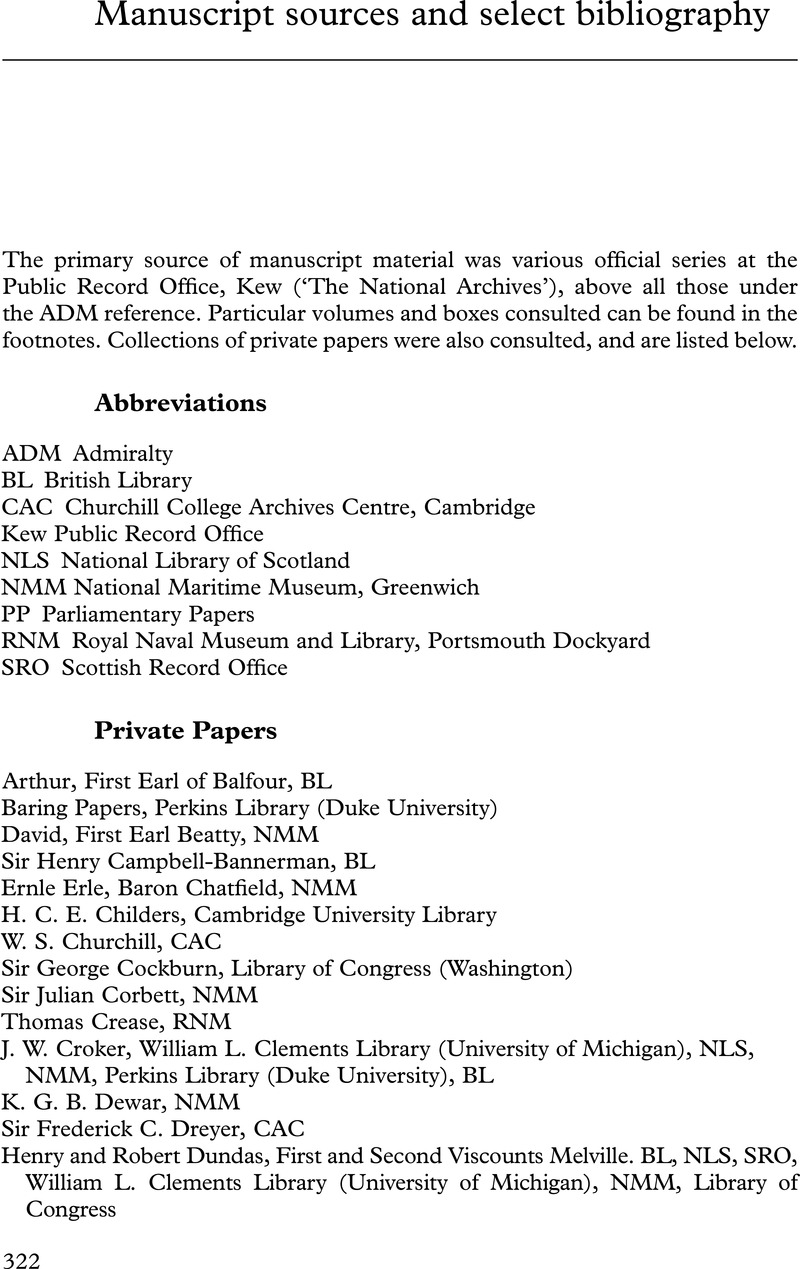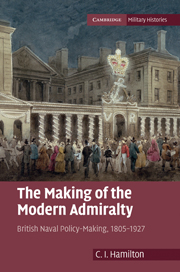Book contents
- Frontmatter
- Contents
- List of tables
- Preface
- Introduction
- 1 Lord Barham's Admiralty: 1805
- 2 Admiralty reform, 1806–1835
- 3 Decision-making at the Admiralty, c. 1806–1830
- 4 Admiralty administration and decision-making, c. 1830–1868. The Graham Admiralty
- 5 The Admiralty reformed again: context and problems, 1868–1885
- 6 Administrative and policy-making responses, c. 1882 onwards
- 7 Fisher and Churchill, and their successors, 1902–1917
- 8 The Naval Staff, planning and policy
- 9 Lord Beatty's Admiralty
- Conclusion
- Appendix 1 First Lords, First Sea Lords and Permanent Secretaries, 1805–1927
- Appendix 2 Acronyms and definitions
- Manuscript sources and select bibliography
- Index
- References
Manuscript sources and select bibliography
Published online by Cambridge University Press: 03 May 2011
- Frontmatter
- Contents
- List of tables
- Preface
- Introduction
- 1 Lord Barham's Admiralty: 1805
- 2 Admiralty reform, 1806–1835
- 3 Decision-making at the Admiralty, c. 1806–1830
- 4 Admiralty administration and decision-making, c. 1830–1868. The Graham Admiralty
- 5 The Admiralty reformed again: context and problems, 1868–1885
- 6 Administrative and policy-making responses, c. 1882 onwards
- 7 Fisher and Churchill, and their successors, 1902–1917
- 8 The Naval Staff, planning and policy
- 9 Lord Beatty's Admiralty
- Conclusion
- Appendix 1 First Lords, First Sea Lords and Permanent Secretaries, 1805–1927
- Appendix 2 Acronyms and definitions
- Manuscript sources and select bibliography
- Index
- References
Summary

- Type
- Chapter
- Information
- The Making of the Modern AdmiraltyBritish Naval Policy-Making, 1805–1927, pp. 322 - 337Publisher: Cambridge University PressPrint publication year: 2011



